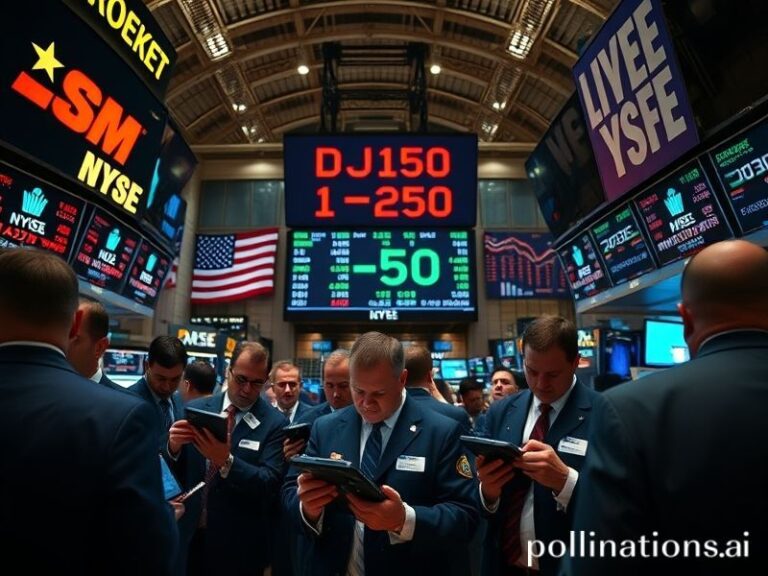Booker T Goes Global: How One Name Became the Planet’s Favorite Rorschach Test
Booker T: The Name That Refuses to Stay on Its Page
By Dave’s Locker Global Desk
PARIS, 05:12 a.m. local—The espresso machine wheezes like an asthmatic accordion, and somewhere between the second and third sip a stranger leans over and asks, “But which Booker T do you mean?” It is the sort of question that makes you realize the planet is now one giant, badly labeled filing cabinet. There’s Booker T. Washington, the American Moses of Tuskegee who taught ex-slaves to lift themselves up by their own bootstraps—bootstraps he neglected to mention were manufactured in Birmingham sweatshops. There’s Booker T. Jones, the Memphis organist who put the “Green” in “Green Onions” and, by extension, in every Quentin Tarantino slow-motion hallway strut. And, for the terminally online, there’s Booker T the wrestler, whose trademark spinaroonie has been GIF-looped so many times UNESCO briefly considered listing it as intangible cultural heritage (right next to French complaining and Korean e-sports rage).
Yet the name keeps metastasizing. Last month the Bank of Uganda floated a “Booker T Bond”—a sovereign-debt instrument named after Washington, not the six-time world champ, though Kampala traders still refer to it as “the spinaroonie” when yields tumble. In Seoul, a start-up launched the “Booker T Bot,” an AI librarian that recommends Marxist agriculture texts to confused K-pop stans. The bot’s server farm is located in Iceland, where geothermal vents keep the GPUs warm while the cod population wonders why its ocean now smells faintly of cotton-gin economics and vintage Stax vinyl.
Globally, the Booker T phenomenon illustrates a quaint twenty-first-century habit: we recycle proper nouns the way fast-fashion chains recycle last season’s polyester—cheap, cheerful, and utterly unbothered by context. Washington’s ghost must be amused; he spent a lifetime arguing that context is everything, only to watch humanity turn his surname into a universal placeholder, like “Kleenex” for facial tissue or “democracy” for whatever Washington exports via drone. Meanwhile, Jones’s Hammond B3 still echoes in every Lagos traffic jam, thanks to bootleg cassettes hawked by boys who think Booker T. is a brand of engine oil. And the wrestler? He now sells NFTs of his 2006 Royal Rumble elimination, each token accompanied by a carbon footprint roughly the size of Luxembourg.
The deeper irony is that all three Booker Ts orbit the same black hole: upward mobility, that most American of religions. Washington preached it with agricultural metaphors; Jones scored it with three-minute soul instrumentals; the wrestler performed it in sequined trunks, body-slamming his way out of Houston’s rough Fifth Ward. Viewed from abroad, the trilogy looks like a syllabus for Late Capitalism 101: self-help, soundtrack, spectacle—repeat until the audience stops buying popcorn.
International development types have noticed. The UN’s new “Booker T Index” ranks countries by their citizens’ ability to rebrand adversity into content. Finland tops the list (sauna diplomacy sells), while the UK plummets after discovering its chief export is now performative nostalgia. The index’s methodology, leaked by a disgruntled intern, relies heavily on TikTok engagement metrics and the price of secondhand Stratocasters on Reverb. Critics call it pseudoscience; fans call it “better than GDP,” which, honestly, isn’t a high bar these days.
What does it all mean? Probably that history is no longer written by the victors but by the SEO strategists. A century from now, when the last librarian uploads the final file to whatever passes for a cloud, the search term “Booker T” will return a merrily chaotic collage: a formerly enslaved man cautioning against political agitation, a Hammond organ coughing up the funkiest riff ever pressed to wax, and a man in neon kneepads helicoptering his arms for the amusement of bloodthirsty philatelists. Humanity will deserve no better.
Conclusion: In the end, the name Booker T functions like a Rorschach test administered to the entire species. Tell me which version you see first, and I’ll tell you which imperial algorithm curates your dreams. The rest of us will simply keep sipping espresso at dawn, pretending the world makes sense, while somewhere a Ugandan bond trader yells “Can you dig it, sucka?” into a Bloomberg terminal. History doesn’t repeat itself, it remixes—and the royalties, as always, are paid in someone else’s currency.







